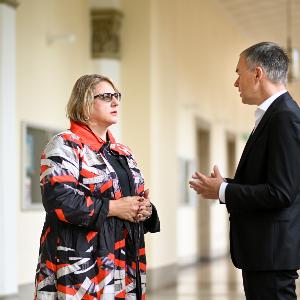Tax law is more suitable for digitization than almost any other area of law, because tax law is law in numbers and tax enforcement, as mass enforcement, can no longer be managed without modern data processing. Even though tax law is already being shaped by digitization in many areas, there is a considerable need to catch up on research into the framework conditions of digitization in tax law.
The essential goal of LMUDigiTax (in German language) is to provide scientific support for the digital transformation in tax law. A focus will be on the legal issues related to digitization in practice.


